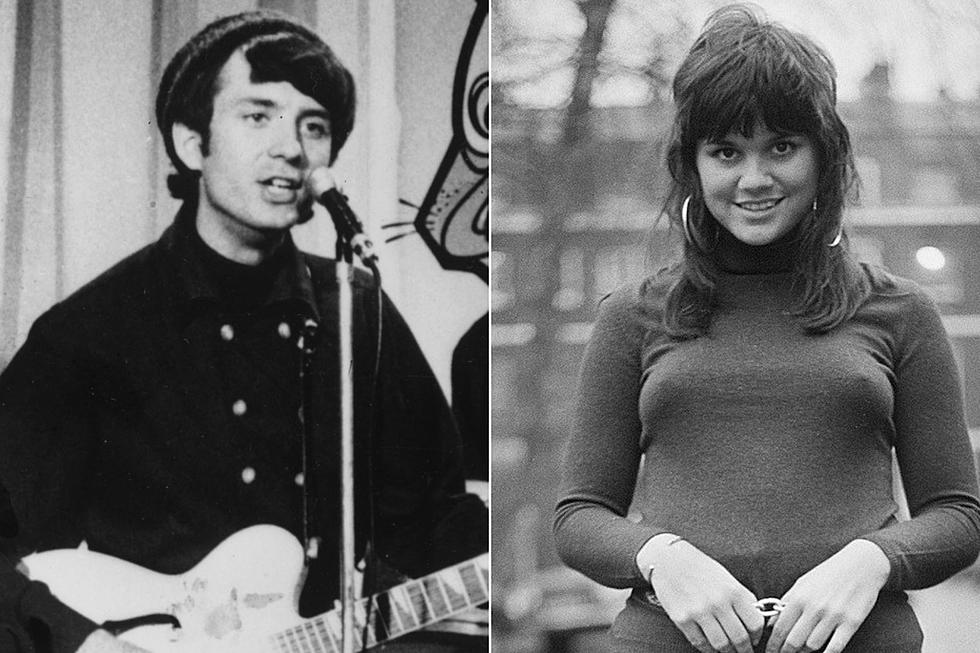
The Day the Final Episode of ‘The Monkees’ Aired
The final episode of The Monkees aired at 7:30PM on Monday, March 25, 1968 on NBC. When the television show about a rock 'n' roll band premiered in 1966, no one could have guessed the phenomenon it would become. Over the 18 months that followed, the fictitious band became a real band, and their records not only topped the charts, but even outsold the Beatles.
The powers that be at NBC, however, decided that the show had run its course, and the Monkees themselves began to grown tired of the formula earlier in the season. "Quite frankly, we were getting a little jaded with the show as it existed," Micky Dolenz wrote in his autobiography I'm A Believer. "Every week Davy [Jones] would fall in love with some girl or Peter [Tork] would be kidnapped by some bad guy, or some guy spy would hide microfilm in somebody's something or other."
The formula had already begun to be mutilated as the second season began. Producers Bob Rafelson and Bert Schneider had started to poke holes in the Monkees' facade and, in TV terminology, started to "break the fourth wall" – that being the one between viewer and cast – by making fun of certain aspects of the cliches of the show, and doing so within the show itself.
As the second season unfolded, the Monkees themselves became more involved directing episodes and giving more input into how the show looked and sounded. Hippie-esque clothing replaced the JC Penney garb as the spirit of 1967 was in full bloom, and various references to drugs, war, and the counter-culture in general were freely sprinkled throughout. In the next-to-last episode, Mike Nesmith brought in friend Frank Zappa for a guest appearance, and in the final episode, directed and co-written by Dolenz, all hell broke lose.
Titled "The Frodis Caper," the episode begins with a sunrise scene as the boys awaken to the sounds of the Beatles' "Good Morning Good Morning," which was the first time the Beatles had allowed their music to be used in a non-Beatles arena. The episode is, in short, about the evil Wizard Glick (played by Rip Taylor) who is on a mission to control people's minds via their television sets. The airwaves beam out a hypnotic eye that is, well, hypnotizing its viewers, a not-so-subtle comment on the brain deadening effects of television. "This is my attempt to address the manipulation of the American mind by the media," said Dolenz in the DVD commentary track, adding that the Evil Eye did bear a strange resemblance to the CBS logo. "Hooray, the Monkees save the world from the evil machinations of the media. ... I guess it didn't work, though, did it?"
Eventually, the boys discover that a creature called the Frodis plant had been captured when its spaceship landed on Earth, and was being used for evil by Wizard Glick. They realize they must rescue the Frodis and return it to its spaceship. Upon rescue, the plant emits this cloud of smoke, and in the process, seems to mellow out Glick and his cohorts, "I'll let you work out that reference, folks," adds Dolenz. The anti-war song "Zor and Zam" is featured during the "typical Monkees romp."
As the story part of the episode ends, on walks the late singer-songwriter Tim Buckley to perform a solo acoustic version of his classic "Song to the Siren." Buckley was a friend of Dolenz, who thought he should be introduced to the world. The beautiful song had, at the time, not been released. It remains one of Buckley's finest moments.
As the filming of the second season was coming to an end, the Monkees (along with Rafelson and Schneider), had already begun work on the movie Head, but were still planning on a third season. "We started talking about what we would do on the next season – a live show? A variety show? A series of sketches?," said Dolenz. "One idea that came up was an awful lot like Laugh-In. "We were, to be quite honest, getting tired of the same format. We wanted to do something a little more unusual, a little more out there."
All of that would, of course, be of no matter when the series was canceled "by mutual consent," he added. The show, of course, would live on for years to come. First in the form of Saturday morning re-runs, then famously in the '80s when MTV began airing the show.
Monkees Albums Ranked
More From Ultimate Classic Rock









